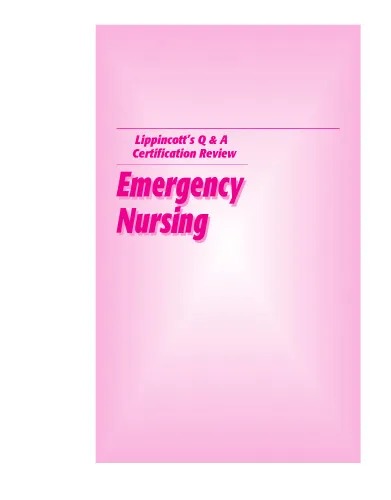Issues in Mental Health Nursing
4.4
Reviews from our users

You Can Ask your questions from this book's AI after Login
Each download or ask from book AI costs 2 points. To earn more free points, please visit the Points Guide Page and complete some valuable actions.Related Refrences:
Analytical Summary
The section “Issues in Mental Health Nursingpp.419—432” represents a concentrated exploration of nuanced topics at the intersection of psychiatric nursing and mental health policy. Written by Lee, Sheuan and Mary Swanson Crockett, this segment stands out for its ability to bridge theoretical knowledge with the real-world intricacies of care, making it a vital resource for professionals committed to advancing mental health nursing.
Within these pages, readers will find a critical examination of systemic challenges in mental health services, including ethical dilemmas, evolving clinical practices, and the role of interdisciplinary collaboration. Rather than presenting a surface-level overview, the authors focus on detailed, evidence-based discussion rooted in research and clinical experience. Topics span treatment accessibility, standards of care, and considerations for diverse populations needing psychiatric support.
Although the exact publication year is information unavailable due to no reliable public source, the timeliness of the issues addressed is evident in their resonance with ongoing global conversations in mental health care. The chapter situates psychiatric nursing practice within broader healthcare and societal contexts, ensuring that readers grasp both micro-level patient care concerns and macro-level policy impacts.
By drawing on data, case examples, and policy frameworks, “Issues in Mental Health Nursingpp.419—432” guides readers toward a holistic understanding of the way mental health services operate and the professional responsibilities nurses hold within these systems.
Key Takeaways
Several pivotal insights emerge from this detailed discussion, each underscoring the complexity and the importance of mental health nursing in modern practice.
First, mental health nursing cannot be divorced from the policies that govern care delivery. Nurses are positioned not only as caregivers but as advocates who can influence policy outcomes.
Second, cultural competence and sensitivity remain central to effective psychiatric practice—especially when serving diverse communities with differing perspectives on mental health.
Third, the authors emphasize the ongoing need for advanced training and continuing education, ensuring nurses remain adept at handling emerging mental health challenges.
Fourth, interprofessional collaboration enhances patient outcomes by integrating multiple perspectives and expertise into care plans.
Finally, ethical challenges, such as patient autonomy versus safety considerations, demand reflective practice and sound judgment from nursing professionals.
Memorable Quotes
“Effective psychiatric nursing is as much about advocacy as it is about treatment.” Unknown
“Policy shapes practice, and practice informs policy—a duality every nurse should understand.” Unknown
“The strength of mental health services lies in their ability to adapt to the needs of every patient.” Unknown
Why This Book Matters
“Issues in Mental Health Nursingpp.419—432” functions as more than a scholarly discussion; it serves as a call to elevate psychiatric nursing practices through informed engagement with policy.
Its multidisciplinary relevance means it can benefit academic researchers, clinicians, and policymakers alike. By succeeding in merging policy analysis with frontline nursing insights, the authors create a text that resonates across the mental health ecosystem.
The relevance is heightened by the fact that mental health remains a pressing public concern worldwide, requiring nuanced strategies informed by both empirical evidence and patient-centered values.
Inspiring Conclusion
In navigating the pages of “Issues in Mental Health Nursingpp.419—432,” readers encounter a rich tapestry of insights that invite not only reflection but action.
The material calls for engagement—whether by integrating its lessons into clinical work, shaping policy debates, or sharing its perspectives within professional networks. By doing so, mental health nursing professionals and scholars can contribute to a more equitable and effective system of psychiatric care.
Your next step is simple yet essential: read “Issues in Mental Health Nursingpp.419—432” with a discerning eye, discuss its themes with colleagues, and share its key ideas widely. In this way, the work's impact will extend beyond the printed page into tangible improvements in the mental health field.
Free Direct Download
You Can Download this book after Login
Accessing books through legal platforms and public libraries not only supports the rights of authors and publishers but also contributes to the sustainability of reading culture. Before downloading, please take a moment to consider these options.
Find this book on other platforms:
WorldCat helps you find books in libraries worldwide.
See ratings, reviews, and discussions on Goodreads.
Find and buy rare or used books on AbeBooks.
1112
بازدید4.4
امتیاز0
نظر98%
رضایتReviews:
4.4
Based on 0 users review
Questions & Answers
Ask questions about this book or help others by answering
No questions yet. Be the first to ask!












